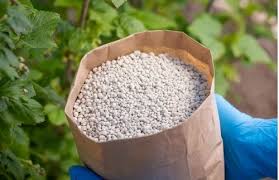
Nov . 06, 2024 07:03 Back to list
high quality water soluble fertilizer for sugarcane
High-Quality Water Soluble Fertilizer for Sugarcane Cultivation
Sugarcane, a vital cash crop that provides not only sweetener but also raw materials for various industries, demands specific nutritional requirements to ensure optimal growth and maximum yield. One of the most effective ways to meet these needs is through the use of high-quality water-soluble fertilizers. These fertilizers can be quickly absorbed by the sugarcane plants, ensuring that essential nutrients are readily available throughout critical stages of growth.
Water-soluble fertilizers are particularly beneficial for sugarcane due to their ability to deliver nutrients in a readily accessible form. Unlike traditional fertilizers that may take time to break down in the soil, water-soluble options bypass this process and provide immediate nourishment to the plants. This is especially important during the early stages of growth when sugarcane is developing its root system and leaf structure. Inadequate nutrition during this phase can lead to stunted growth and reduced yields.
High-quality water-soluble fertilizers typically contain a balanced mix of macronutrients and micronutrients essential for sugarcane. Macronutrients such as nitrogen, phosphorus, and potassium play pivotal roles in the plant’s development. Nitrogen promotes vigorous vegetative growth, phosphorus is crucial for root development and energy transfer, while potassium enhances disease resistance and improves sugar accumulation within the stalk. Additionally, micronutrients like magnesium, iron, and zinc are critical for enzyme function, chlorophyll production, and overall plant health.
high quality water soluble fertilizer for sugarcane

The application of water-soluble fertilizer can be tailored to specific growth stages and soil conditions, allowing for precision farming techniques. This adaptability not only maximizes the effectiveness of the nutrients supplied but also minimizes wastage, thereby enhancing economic viability for farmers. Moreover, many modern water-soluble fertilizers come with additives that improve nutrient uptake efficiency and support soil health by encouraging beneficial microbial activity.
Furthermore, the environmental impact of sugarcane farming can be mitigated through the judicious use of water-soluble fertilizers. By minimizing runoff and ensuring that nutrients are efficiently utilized by the crop, farmers can reduce their reliance on chemical fertilizers, which can have detrimental effects on the ecosystem. Sustainable farming practices that incorporate high-quality water-soluble fertilizers contribute to healthier soils and promote biodiversity.
In conclusion, the application of high-quality water-soluble fertilizers in sugarcane cultivation not only supports optimal growth and enhances yields but also aligns with sustainable agricultural practices. As the demand for sugarcane continues to rise, adopting innovative fertilization techniques will be vital in ensuring the crop’s productivity while safeguarding the environment for future generations. By investing in these high-quality inputs, farmers can achieve better profitability and contribute positively to the agricultural landscape.
-
Organic 10-10-10 Fertilizer | Balanced Plant Nutrients
NewsJul.31,2025
-
Premium Amino Acid Fertilizer | Rapid Plant Growth Booster
NewsJul.31,2025
-
10 10 10 Fertilizer Organic—Balanced NPK for All Plants
NewsJul.30,2025
-
Premium 10 10 10 Fertilizer Organic for Balanced Plant Growth
NewsJul.29,2025
-
Premium 10 10 10 Fertilizer Organic for Balanced Plant Growth
NewsJul.29,2025
-
Premium 10 10 10 Fertilizer Organic for Balanced Plant Growth
NewsJul.29,2025
